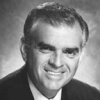The devastation and tragedy that came in the aftermath of Hurricane Katrina is a catastrophe unprecedented in United States history. The widespread destruction across the Gulf Coast region of three states has struck at the very heart of the American people. There’s no other way to say it: it just made me sick to see people dying and suffering among the floodwaters and ravaged communities. How could a nation—the strongest, most productive, and most well-off of First World nations—let our people suffer like this?
The blame game that followed in the days after the hurricane and flood waters hit only served to make the situation worse. That elected officials and public servants, both Republicans and Democrats—along with a good share of journalists and pundits—would bicker over who was at “fault” for this disaster in an attempt to score political points served absolutely no purpose whatsoever and only underscored the belief among many Americans that politicians only look out for themselves. It made my own stomach turn to see this partisan squabbling, especially at time when we should be rallying to help our fellow Americans.
The disparity in the immediate aftermath of Katrina and the immediate aftermath of the terrorist attacks of September 11, 2001 was incredible. Following 9/11, elected officials of all political stripes dropped the partisanship and worked together to get things done. The seminal moment probably took place when almost all the members of both the House and the Senate stood on the steps of the U.S. Capitol the evening of 9/11 and together we sang “God Bless America.” By contrast, the partisan screaming began almost immediately following landfall of Katrina and really hasn’t let up since.
In spite of the lack of leadership shown by all levels of government, it wasn’t surprising to see the true leadership that came through. It’s the same leadership that makes our country so great: the indomitable spirit of the American people who always rise to the occasion.
It didn’t take FEMA, the State of Louisiana, or the City of New Orleans to make people hop in their cars and drive to the devastation to help those in need. Doctors, nurses, policemen, firefighters, and all sorts of everyday citizens just looked at the images on television and knew they had to be there to help. No waiting to be told, no waiting for the government to organize; they just packed up, drove there, and went to work.
Other people across the country who couldn’t head to the Gulf Coast also showed their generosity and concern. In the two weeks that followed Katrina, more than $700 million in donations flowed into charities responding to the disaster—a pace that surpasses any level of contributions in the past, including 9/11. The Red Cross, which has borne the brunt of the response, has housed more than 200,000 hurricane survivors in 709 shelters scattered in 24 states. The agency says they’ve trained 63,000 volunteers to assist the 74,000 relief workers.
There’s so much that will need to be done in the months and years ahead. While the infrastructure of New Orleans, Gulfport, Biloxi, Bay St. Louis, Dauphin Island, and numerous other communities will need to be rebuilt, there are thousands upon thousands of displaced citizens who’ll need to rebuild their lives as well. Survivors have spread across the country, whether being housed in shelters or with family or friends, a demographic shift that will impact other communities and states for years to come. We need to have answers to serious questions about preparation for emergencies, for protecting our citizens from natural disasters, and to how to rebuild these communities better than they were before Katrina. We need to make sure that when disasters strike in the future—and they will strike—that we’re much better prepared than we were on August 29, 2005.
Congress began the process of assisting these areas by passing more than $62 billion in disaster assistance within 10 days of the hurricane. There will be hundreds of billions more in federal assistance in the future. From New Orleans to Washington, there’s sure to be investigations, hearings, and commissions that look into what went wrong. In fact, the week after this tragedy, the leaders of the U.S. House and Senate established a bi-cameral committee to investigate.
I want to say a special word of thanks to all the folks in the Peoria area who’ve stepped forward to help people affected by the hurricane. Local emergency and medical personnel made their way to the Gulf Coast. So many people in the community pulled together with a huge effort to provide shelter and care for folks if they had arrived. While we didn’t see the influx of survivors we were planning for, it was heart-warming to see our local citizens pull together in this effort, and it certainly was an exercise that helps us plan for the future.
While there are many questions to be answered and lessons to be learned in light of this tragedy, I fully believe New Orleans and the Gulf Coast will be back stronger than ever. This is a magnificent area of our country—with a colorful and storied history and home to wonderful people, and it’s that indomitable American spirit that will rebuild these communities. IBI

